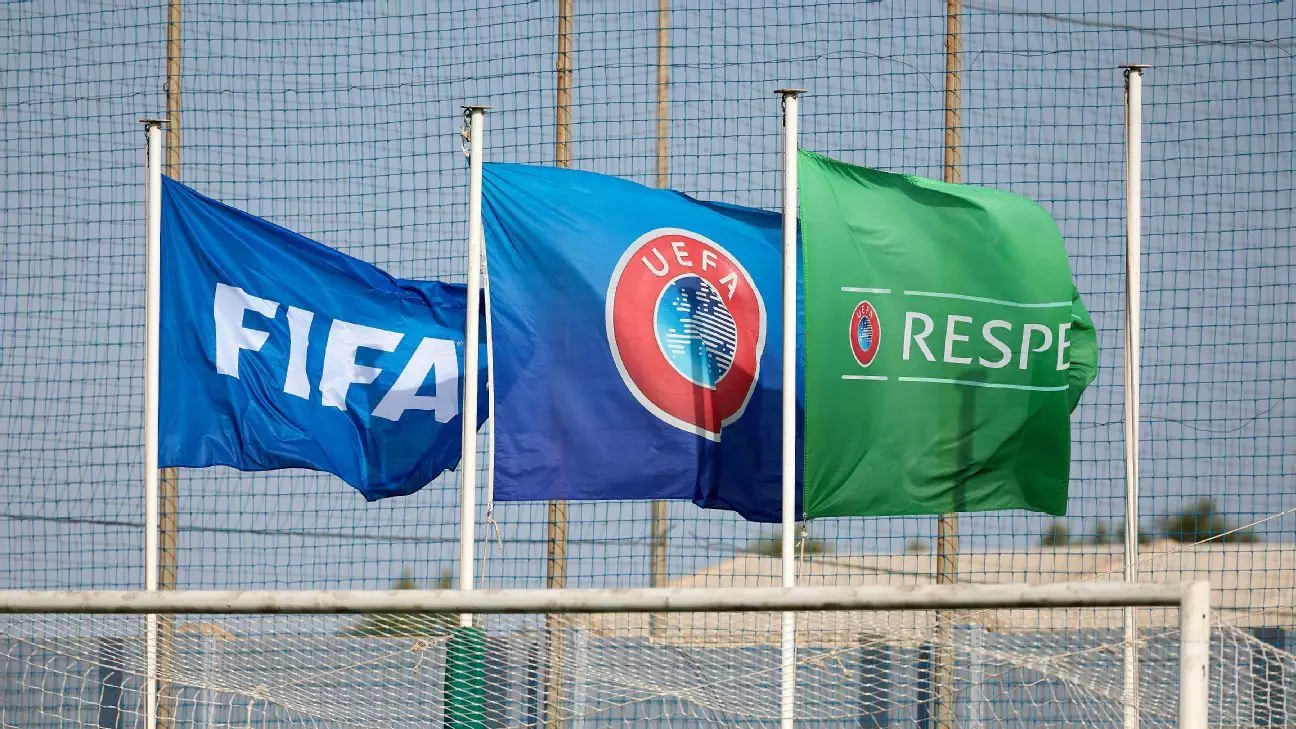In a groundbreaking ruling, the European Court of Justice (ECJ) has found UEFA guilty of “abusing a dominant position” in its control of European football. The decision comes as a significant boost to the Super League project and its backers, A22 Sports, who have long argued that UEFA’s prohibition of the competition and its threatened punishments for participating clubs were an illegal monopoly under European competition law.
The ECJ ruling targets both FIFA and UEFA, acknowledging that their rules requiring new football competitions to be subject to their prior approval and banning players from participating in those competitions were “unlawful.” The court further criticized the lack of transparency, objectivity, non-discrimination, and proportionality in these rules. Additionally, the court highlighted the exclusive control that FIFA and UEFA have over the commercial exploitation of rights associated with football competitions, emphasizing how this restricts competition and limits choices for media, consumers, and television viewers in the European Union.
The court categorically stated that organizing football competitions is an economic activity and must, therefore, comply with competition rules and respect the freedom of movement. However, it clarified that the ruling does not automatically approve competitions like the Super League project but rather critiques FIFA’s and UEFA’s rules in general. Despite this, the decision serves as a significant victory for the Super League project’s goal of replacing UEFA’s Champions League.
Bernd Reichart, CEO of A22 Sports, expressed his joy at the ruling, asserting that the victory signifies the end of UEFA’s monopoly and the newfound freedom for clubs to determine their own future. UEFA responded to the ruling by emphasizing that it had already updated its rules following the Super League’s attempted launch. The organization maintained that the ruling did not validate or endorse the Super League but rather highlighted a technical shortfall in UEFA’s pre-authorization framework, which had been addressed in June 2022. UEFA expressed confidence in the robustness of its new rules, ensuring compliance with all European laws and regulations.
The Super League project initially gained attention when 12 prominent clubs, including Arsenal, Chelsea, Liverpool, Manchester City, Manchester United, Tottenham Hotspur, Atletico Madrid, Barcelona, Real Madrid, AC Milan, Inter Milan, and Juventus, signed up as members in April 2021. The move shocked the football world, with Real Madrid’s Florentino Perez and Juventus’ Andrea Agnelli leading the project. The Super League was born out of frustration with UEFA’s dominant role in organizing the Champions League and dissatisfaction with its format and revenue model.
However, the project faced immediate opposition from various stakeholders, including football’s governing bodies, fans, and politicians, particularly in England. As a result, nine clubs swiftly announced their withdrawal, leaving only Real Madrid, Barcelona, and Juventus as public supporters. Despite the setbacks, the Super League proponents were determined to establish a platform that modernizes the sport, attracts global fans, and incorporates effective financial fair play measures.
Thursday’s court ruling has set the stage for a new era in European football, allowing clubs to take control of their own destinies. Real Madrid’s Florentino Perez expressed the club’s commitment to a modern project that coexists with national competitions, offering equal opportunities for all based on sporting merit and financial fair play. Perez acknowledged that ending a long-standing monopoly would not be easy but asserted that the present and future of European football now belong to the clubs, players, and fans.
Barcelona also expressed satisfaction with the court ruling, stating that it paves the way for a new elite level football competition in Europe. The Super League, led by A22 Sports CEO Bernd Reichart, has plans to relaunch and rebrand the competition, proposing a more open and meritocratic format. Reichart assured fans that all Super League games will be broadcast for free, and clubs will receive guaranteed income and solidarity payments. However, opposition from Spain’s LaLiga and its president Javier Tebas remains strong, with concerns that the Super League could undermine domestic leagues.
The European Court of Justice’s ruling against UEFA reaffirms the importance of competition rules and the need to respect the freedom of movement in football competitions. By declaring FIFA’s and UEFA’s rules as unlawful, the court has opened the door for the Super League project to reemerge and challenge UEFA’s dominance. While the ruling does not automatically approve the Super League, it serves as a significant milestone in the project’s journey towards reforming European football. The destiny of European football is now in the hands of the clubs, players, and fans, who must strive to create a more inclusive and fair system that embraces innovation and competition.


Leave a Reply